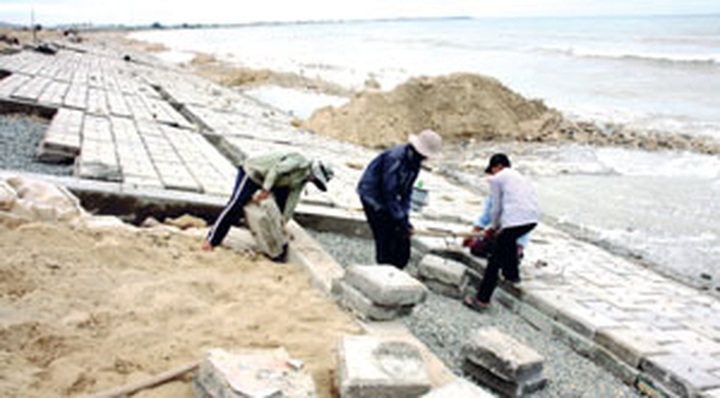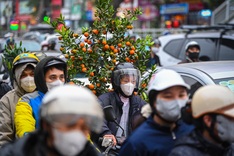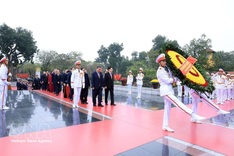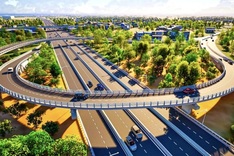 |
| Workers consolidate a sea dyke system in Dam Vua area, Ninh Hai Commune, Ninh Hai District, Ninh Thuan Province. |
This was among the major issues highlighted by the Ministry of Natural Resources and Environment in a proposal that set out an action plan for how the country should address climate change. This document is to be submitted to the 7th Party Central Commitee Congress.
The ministry yesterday held a workshop to consult with representatives from other line ministries and leaders of provinces in the northern part of Viet Nam on the content of the proposal. The workshop was chaired by Deputy Prime Minister Hoang Trung Hai.
While presenting the proposal, Deputy Minister Tran Hong Ha noted that although Viet Nam had set up links with foreign partners, the majority of them were still of a limited scope and/or short term. The mobilisation from international financial institutions, foreign governments and the Official Development Assistance fund was not effective.
On the domestic front, the current financial mechanism and administrative system failed to create an attractive legal environment to engage participation from the private sector and community, he said.
Limited funding has resulted in ineffective responses to climate change, which Deputy Prime Minister Hai said it posed a great challenge to the development of the country.
An example was brought to the discussion from Viet Nam Union of Science and Technology Associations representative Ngo Thuan Khiet. He said while his union covered roughly one million scientists, total funding for research in environment protection including climate change was just a few billion dong.
Deputy Minister Ha said the next target set by the ministry is to put in place smart policies to raise financial resources, based on the radical approach that "beneficiaries of the ecosystem services have to pay for what they use" and "polluters must pay clean-up expenses."
This will act as a fundamental foundation to solve the resource shortage problem and help ease the burden shouldered by the State and Government in terms of financial resources.
The total cost of loans and international assistance Viet Nam has received for climate change since 2010 is more than $500 million.




















